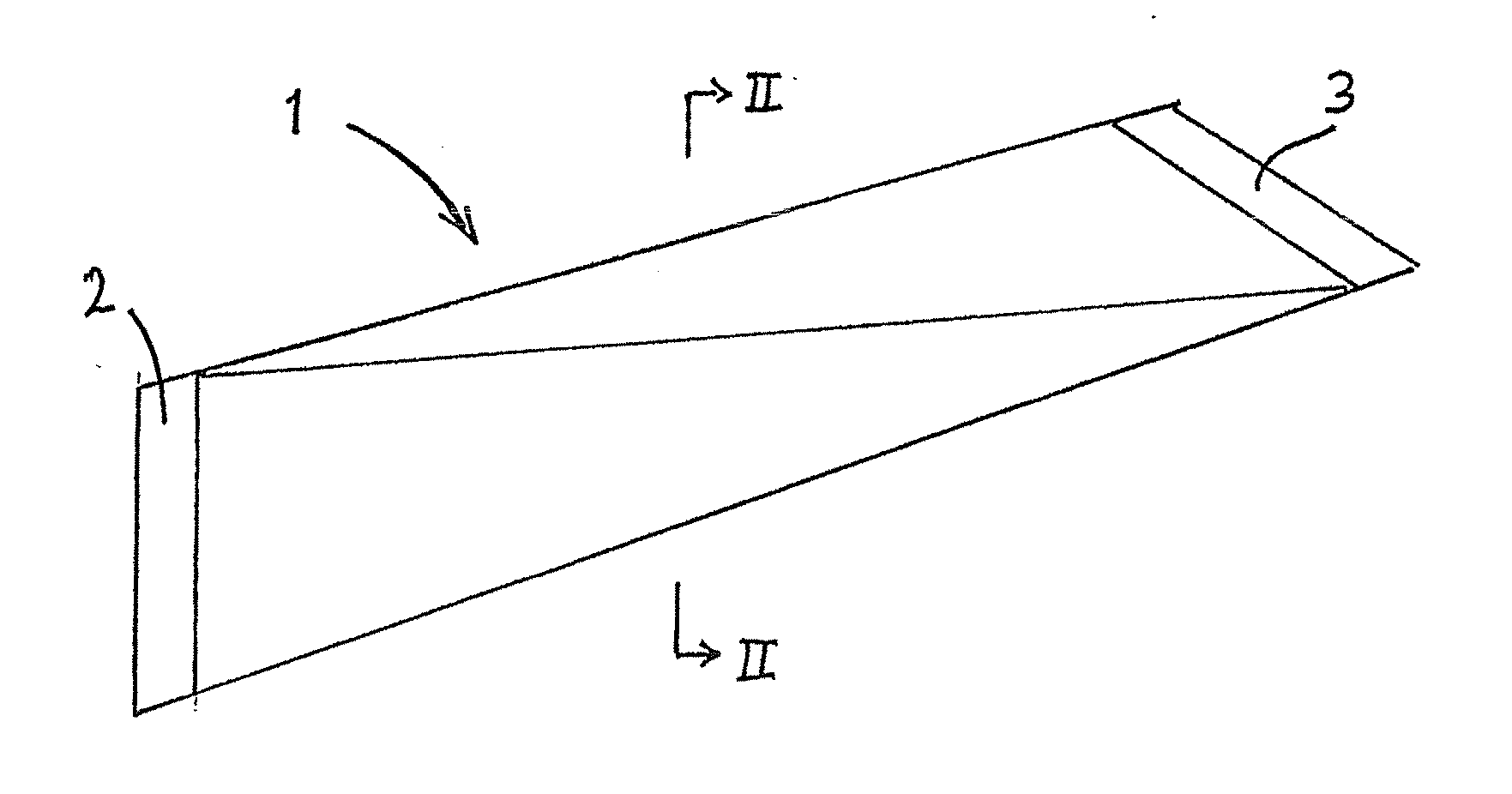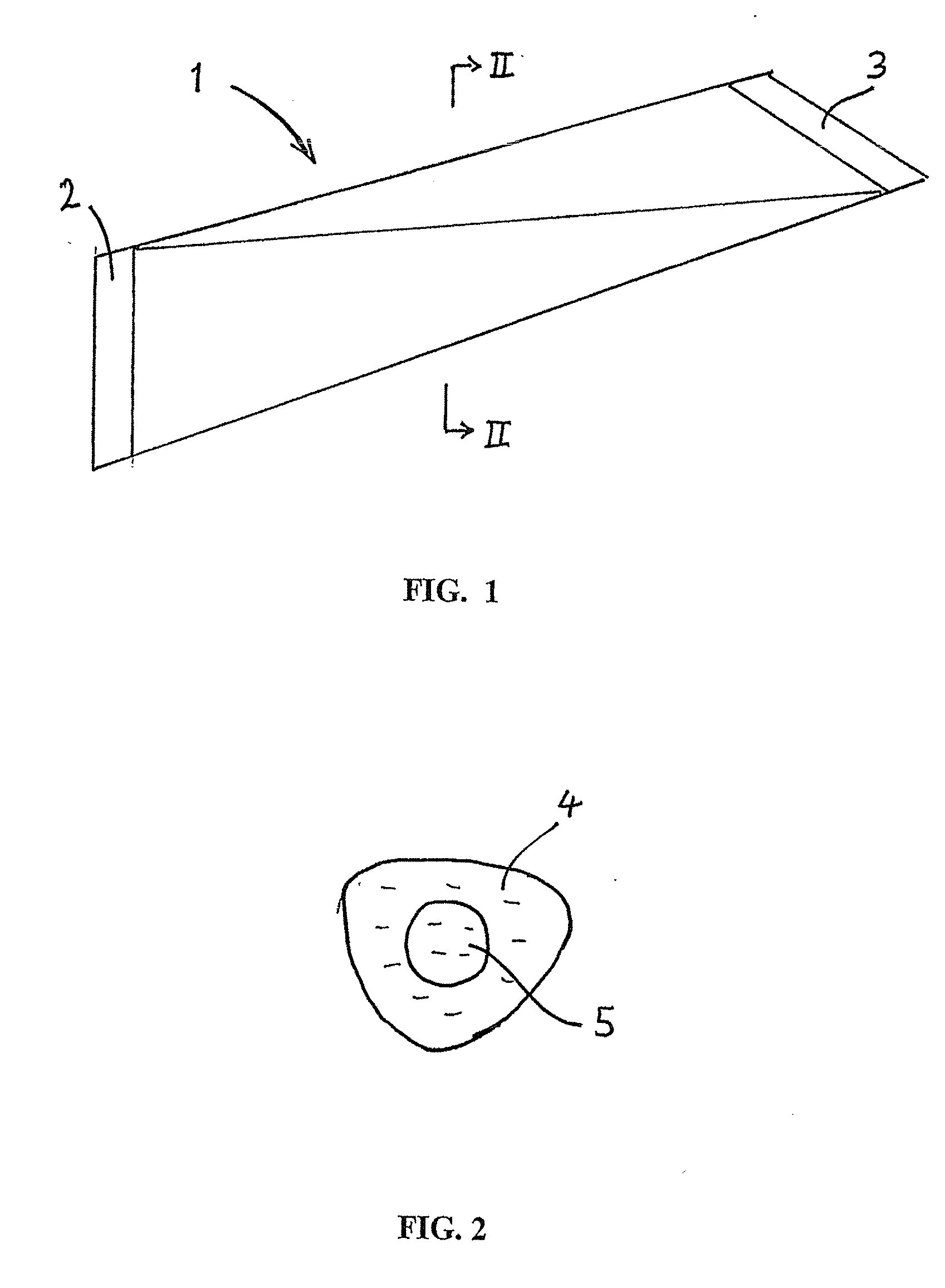Fruit Snack
a fruit and jelly technology, applied in the field of fruit snacks, can solve the problems of less palatable products than fresh fruit or jelly, difficult consumption of certain fresh fruits such as mangoes, and relatively rapid spoilage, and achieve the effects of promoting demethoxylated pectin gelling, minimal processing, and minimal additives
- Summary
- Abstract
- Description
- Claims
- Application Information
AI Technical Summary
Benefits of technology
Problems solved by technology
Method used
Image
Examples
example 1
[0060] A packaged fresh mango bar was prepared as follows. Ripe mango (Tommy Atkins variety, Guatemala) was peeled, stoned and chopped to coarse puree. Approximately 0.25% ascorbic acid was added as an antioxidant to protect the product against oxidation. The pH after the addition of ascorbic acid was 3.5.
[0061] PME (1800 PE units per kg fruit) was added. The PME was Rapidase® FP Super, a liquid purified PME from a non-GMO strain of Aspergillus niger. Minimum activity was 900 PEU / g. It is Kosher and Halal approved, preservative free and suitable for organic production.
[0062] The pulp was then filled directly into a stick (pillow) pouch of dimensions approximately length 10 cm, width 4 cm. The pouches were formed from an oxygen barrier film (with O2 transmission rate 3 / m2 / day).
[0063] The stick pouches were then immediately passed to a UHP apparatus at ambient temperature and subjected to 350 MPa for 5 minutes (peak temperature about 35° C.), or to 600 MPa for 5 minutes (peak tempe...
reference example 2
[0064] A mango fruit bar was prepared by a method similar to that of Example 1 but instead of the UHP incubation and stabilization step, separate thermal incubation and stabilization steps were carried out. The thermal incubation carried out at 40° C. for 30 minutes. This resulted in a gelled fruit bar having a coherent structure and dimensional stability with fresh fruit appearance, aroma and taste. The structural integrity of the bar was slightly less than that of the bar produced by UHP, and the texture of the thermally incubated bar was less homogenous, with a weaker matrix and more solid fruit pieces in the matrix.
[0065] The thermally incubated bar is then thermally stabilized by heating at 85° C. for five minutes. This minimal thermal processing results in a stabilized fruit bar having substantially natural color, flavor and aroma.
example 3
[0066] The process of Example 1 was repeated with a fresh papaya fruit pulp. Ascorbic acid 1 wt. % was added to give a final pH of the pulp of 3.7. PME was added in an amount of 0.2 wt. %. No calcium was added. UHP treatment was carried out at 400 MPa for 5 minutes (first sample) and 10 minutes (second sample) resulting in stabilized, packaged papaya gel products.
PUM
 Login to View More
Login to View More Abstract
Description
Claims
Application Information
 Login to View More
Login to View More - R&D
- Intellectual Property
- Life Sciences
- Materials
- Tech Scout
- Unparalleled Data Quality
- Higher Quality Content
- 60% Fewer Hallucinations
Browse by: Latest US Patents, China's latest patents, Technical Efficacy Thesaurus, Application Domain, Technology Topic, Popular Technical Reports.
© 2025 PatSnap. All rights reserved.Legal|Privacy policy|Modern Slavery Act Transparency Statement|Sitemap|About US| Contact US: help@patsnap.com


